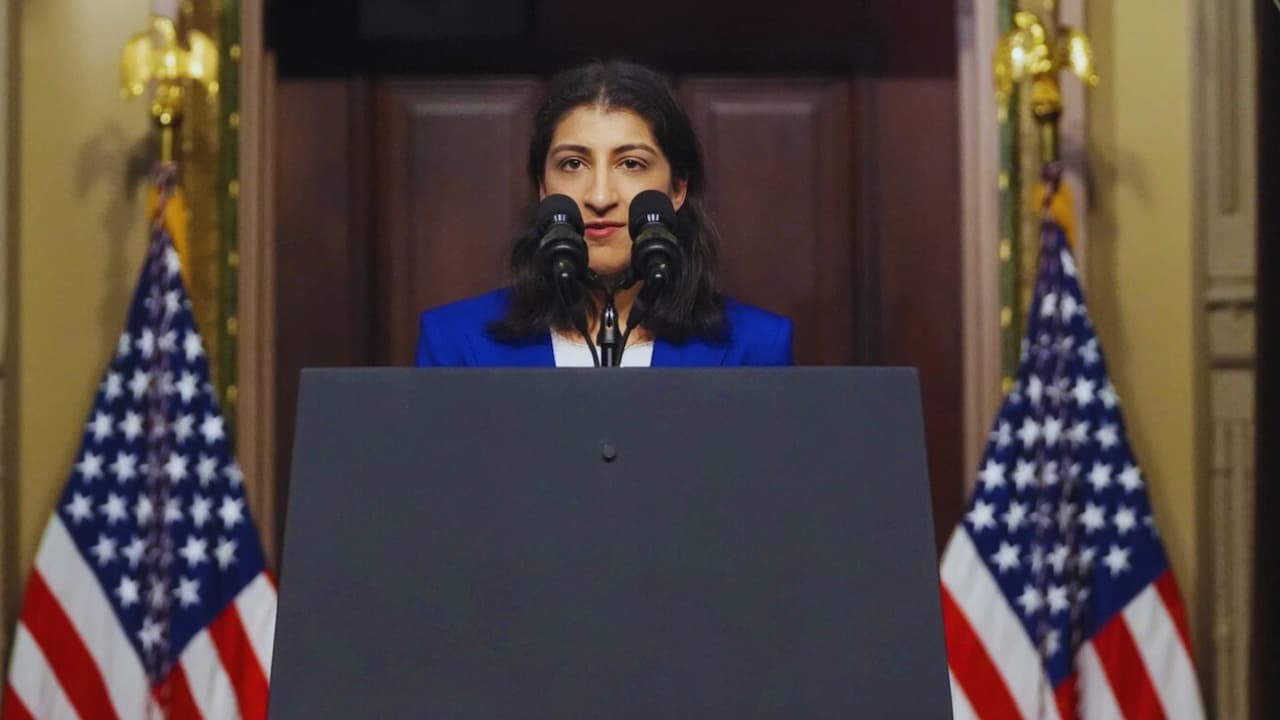Trump’s Return Could Turn Tech Antitrust Battle into Deal-Making Bonanza
As Donald Trump prepares to return to the White House, a potential shift in America’s approach to its tech giants is sweeping through Silicon Valley. The aggressive antitrust stance that marked President Biden’s administration might soon give way to a more deal-friendly approach, experts say.
We expect key players like Lina Khan at the Federal Trade Commission (FTC) and Jonathan Kanter at the Justice Department, who spearheaded Biden’s tough tech crackdown, to depart. In their place, Trump’s team, including tech billionaire Elon Musk as a key advisor, could reshape how the government handles big tech companies and mergers.
“We’re looking at a complete change in how Washington deals with tech companies,” says John Kwoka, who teaches economics at Northeastern University. “Having Musk whispering in the president’s ear is something we’ve never seen before.”
The shift is already making waves on Wall Street. Dan Ives, an analyst at Wedbush Securities, predicts we’re entering “a golden era for tech deals” over the next year and a half. The stock market seems to agree—companies in the middle of merger talks have seen their values jump since Trump’s win.
Take the Capital One and Discover merger plan. Since Election Day, Capital One’s worth has shot up 11%, while Discover has climbed 16%. Investors are betting that Trump’s team will give such deals a friendlier reception than Biden’s regulators did.
However, what is the status of the ongoing cases against tech giants? While a judge has declared Google’s search engine an illegal monopoly and the government is attempting to dismantle Ticketmaster, these cases may not completely disappear. Instead, we might see more settlements and deals rather than prolonged court battles.
“Big Tech might want to brush up on ‘The Art of the Deal,'” jokes Paul Swanson, an antitrust lawyer at Holland & Hart. “Trump loves making deals, and these companies might find ways to settle rather than fight.”
Some blocked deals could get a second chance. American Airlines and JetBlue are already considering resuming their partnership, which Biden’s team had previously terminated. “We’re taking another look,” confirms Robert Isom, American Airlines’ CEO.
The supermarket world is watching, too. Kroger and Albertsons want to join forces in a $24.6 billion deal that the FTC is fighting. They claim their merger would help them compete with Walmart and lower prices, but regulators worry about reduced competition and worker wages.
Trump’s return could potentially create new opportunities for tech companies facing legal troubles. Live Nation’s president, Joe Berchtold, hopes for “a more traditional approach” to solving antitrust issues, suggesting companies expect more flexibility under Trump.
The biggest question mark hangs over Google’s case. Judge Amit Mehta will decide by next August how to punish the search giant for monopoly behavior. While the current Justice Department wants to break up parts of Google, Trump’s team might take a softer approach when they take over.
Professor Kwoka finds this potential shift troubling: “Tech companies have operated without real limits for 20 years. We finally started setting boundaries, but four years wasn’t enough time to show results. Now we might lose that progress.”
As Silicon Valley prepares for Trump’s return, one thing is clear: the tech industry’s regulatory landscape is about to change dramatically. We will see if this leads to more innovation through mergers or less competition through consolidated power. For now, deal-makers are getting ready for what could be their busiest season in years.
